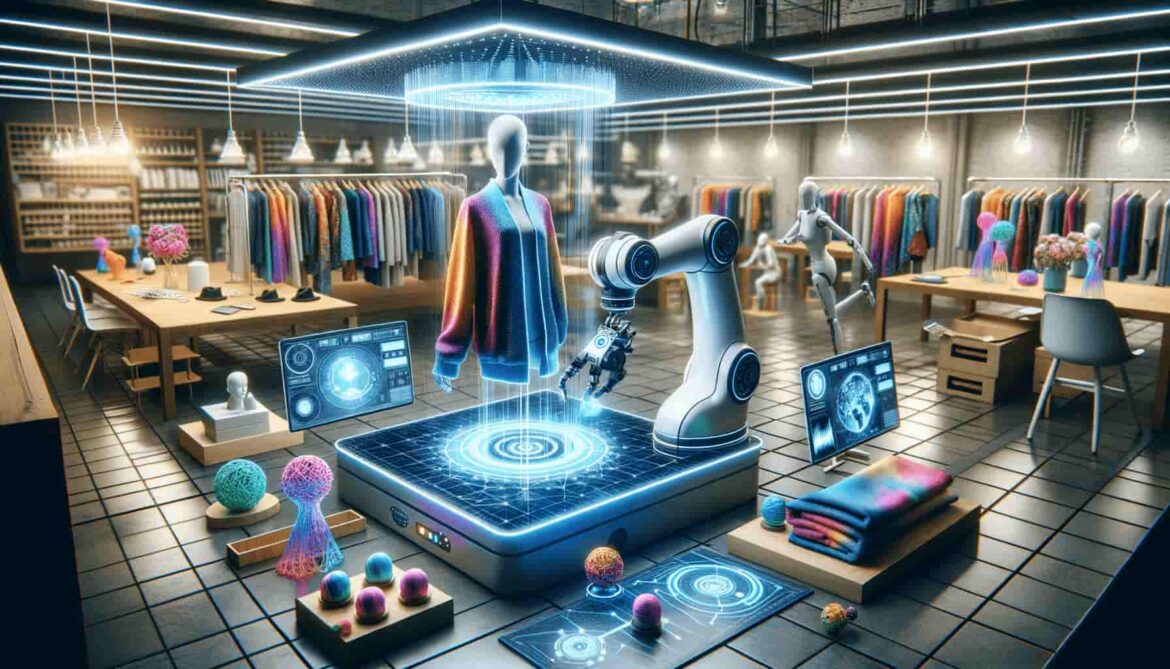Artificial intelligence (AI) is radically redefining the landscape of the fashion industry. From design processes to personalized shopping experiences, AI is integrating multiple facets of fashion and accessories. This digital transformation is opening up new avenues for innovation, sustainability and personalization. This article sets out to decipher these developments and examine how AI is driving a paradigm shift in fashion.
The Impact of Artificial Intelligence on Fashion Design
When Technology Meets Styling: AI in Design
Fashion design with AI is ushering in a new era of creativity. AI-powered software can now analyze trends, historical fashion data and even social media posts to anticipate what consumers will want to wear. This analysis can then inform designers, who use this information to design garments in line with future market expectations.
AI and real-time personalization of accessories
AI also plays an important role in accessory personalization. From smartwatches to editable jewelry, it enables consumers to personalize their accessories in real time, often via an app or online interface. Algorithms can suggest designs, colors and materials based on the user’s personal preferences, creating a unique experience for each individual.
New Horizons for Fashion Thanks to AI
Connected Accessories: A Trend That’s Getting Stronger
The trend towards connected accessories is gaining ground, and AI is at the heart of this evolution. Smartwatches, fitness wristbands and even handbags are now designed to interact with other devices, collect data and offer AI-optimized features that enhance users’ daily lives.
Collection Optimization with Predictive Data
AI’s use of predictive data enables fashion brands to better understand consumer desires and quickly adjust their collections accordingly. This means brands can produce what will sell, reducing waste and increasing customer satisfaction.
Artificial Intelligence: A Tool for Trend-Setters
From Inspiration to Forecast: How AI shapes Trends
AI systems are able to scan vast quantities of fashion data and predict future trends with astonishing accuracy. This process gives fashion designers a considerable advantage: they can now know which styles, textures or colors will be in vogue, and when.
Artificial Intelligence and 3D Modeling in Fashion Accessories
The integration of 3D modeling and AI is serving to revolutionize accessory design. Designers are exploiting these technologies to design digital prototypes, test structures and materials, and even create bespoke accessories for consumers without having to physically produce each prototype.
The Future of Responsible and Intelligent Fashion
AI at the Service of Ethical and Sustainable Fashion
AI is helping to develop more ethical and sustainable fashion. By optimizing supply chains and forecasting demand more accurately, it reduces production surpluses and thus minimizes environmental impact. In addition, data analysis can help trace and certify the ethical origin of the materials used.
From Intelligent Fabrics to Eco-designed Accessories
Intelligent textiles capable of changing color or temperature depending on the environment are being developed thanks to AI. In the field of accessories, innovation doesn’t stop there: AI is helping to create eco-designed fashion items that meet sustainability criteria without compromising style.
The Digital Transformation of the Fashion Customer Experience
AI-Assisted Shopping: Recommendations and Personalized Purchasing
The fashion shopping experience is being transformed by AI. Personalized recommendations based on data analysis help consumers find what they’re looking for more easily. Online or in physical stores equipped with digital devices, AI facilitates a tailored customer journey.
Virtual Reality and Virtual Trials: The New Frontier of Fashion Retail
Virtual reality (VR) and virtual fitting rooms, supported by AI technologies, offer consumers an immersive experience to try on clothes and accessories without having to physically put them on. This represents a future where fashion shopping will be more accessible, fast and personalized, powered by AI innovation.

